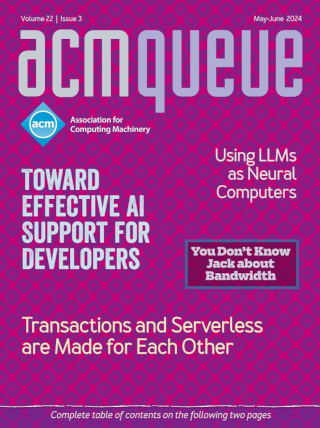
Mobile Application Development: Web vs. Native:
Web apps are cheaper to develop and deploy than native apps, but can they match the native user experience?
A few short years ago, most mobile devices were, for want of a better word, "dumb." Sure, there were some early smartphones, but they were either entirely e-mail focused or lacked sophisticated touch screens that could be used without a stylus. Even fewer shipped with a decent mobile browser capable of displaying anything more than simple text, links, and maybe an image. This meant if you had one of these devices, you were either a businessperson addicted to e-mail or an alpha geek hoping that this would be the year of the smartphone. Then Apple changed everything with the release of the iPhone, and our expectations for mobile experiences were completely reset.
Scalable SQL:
How do large-scale sites and applications remain SQL-based?
One of the leading motivators for NoSQL innovation is the desire to achieve very high scalability to handle the vagaries of Internet-size workloads. Yet many big social Web sites and many other Web sites and distributed tier 1 applications that require high scalability reportedly remain SQL-based for their core data stores and services. The question is, how do they do it?
The One-second War (What Time Will You Die?):
As more and more systems care about time at the second and sub-second level, finding a lasting solution to the leap seconds problem is becoming increasingly urgent.
Thanks to a secretive conspiracy working mostly below the public radar, your time of death may be a minute later than presently expected. But don’t expect to live any longer, unless you happen to be responsible for time synchronization in a large network of computers, in which case this coup will lower your stress level a bit every other year or so. We’re talking about the abolishment of leap seconds, a crude hack added 40 years ago, to paper over the fact that planets make lousy clocks compared with quantum mechanical phenomena.





